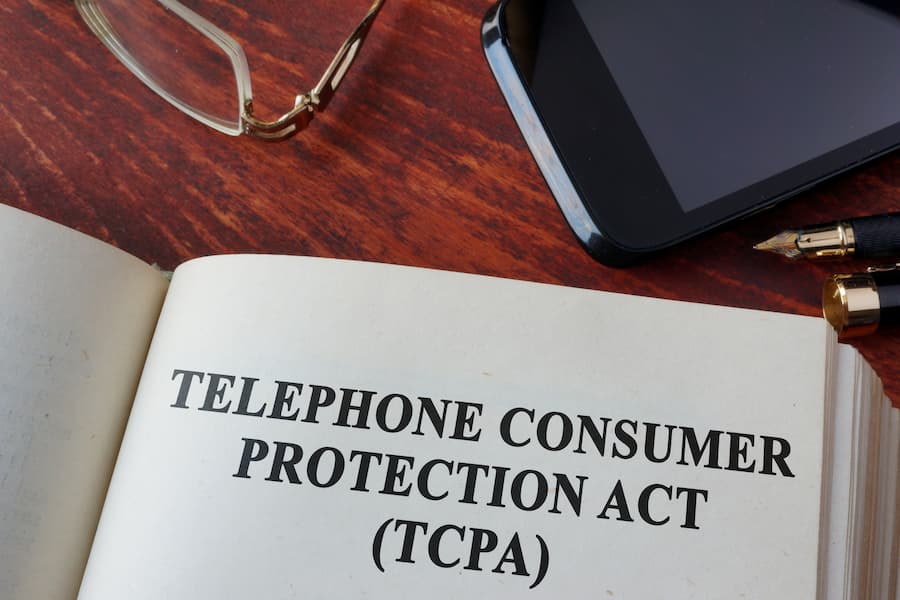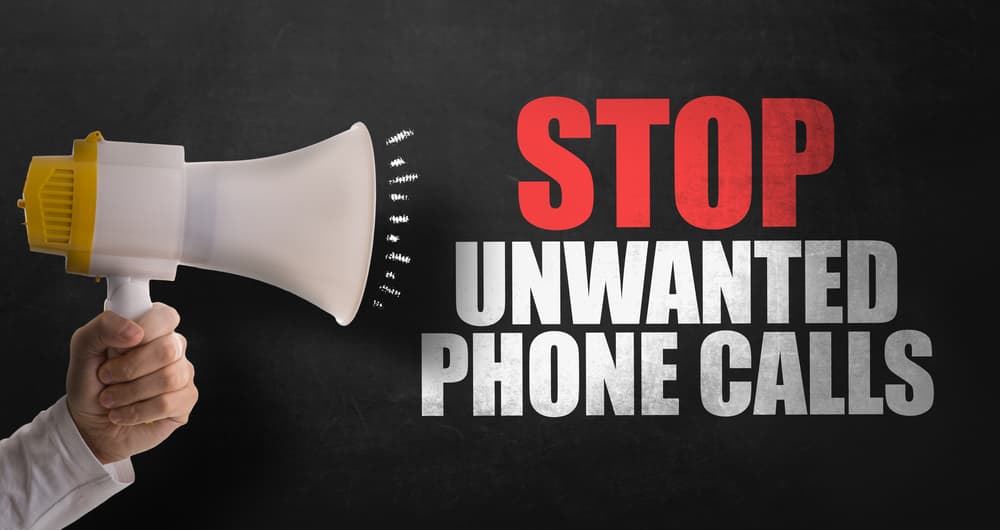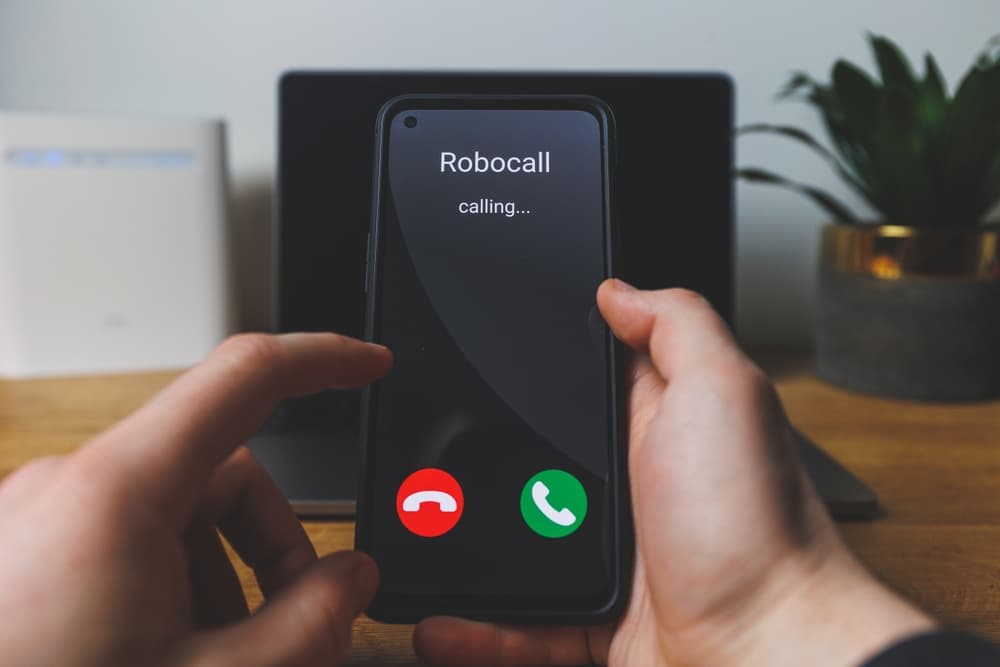Robocalls, or automated telephone calls that deliver pre-recorded messages, have become a pervasive and frustrating problem for many Californians. These calls can come from telemarketers, scammers, or even legitimate businesses, and they can be difficult to stop once they start.
But are robocalls legal in California? The answer depends on many factors.
In this blog post, we’ll explore the laws and regulations surrounding robocalls in California, including what calls the law allows, what restrictions it institutes, and what you can do to protect yourself from unwanted robocalls.
Federal Laws Governing Robocalls

Before we dive into California-specific laws, it’s important to understand the federal laws that govern robocalls. The primary law is the Telephone Consumer Protection Act (TCPA), which Congress passed in 1991 and updated several times since then.
The TCPA places several key restrictions on robocalls:
- Robocalls to cell phones are prohibited without the recipient’s prior express consent, except for emergency purposes or calls from tax-exempt nonprofit organizations.
- Robocalls to landlines are allowed but must include certain disclosures and an opt-out mechanism.
- All robocalls must identify the caller at the beginning of the message and include a contact phone number or address.
- Robocalls are prohibited before 8am or after 9pm, local time.
In addition to the TCPA, several other federal laws and regulations govern robocalls, including:
- The Federal Trade Commission’s (FTC) Telemarketing Sales Rule, which requires telemarketers to obtain prior written consent before making robocalls and prohibits certain deceptive practices.
- The Federal Communications Commission’s (FCC) rules implementing the TCPA, which provide additional guidance on compliance and enforcement.
- The Do Not Call Registry, which allows consumers to opt out of telemarketing calls by registering their phone numbers.
California Laws Governing Robocalls
California has more restrictive laws than Congress, and they provide additional consumer protections.
The primary California law governing robocalls is the California Consumers Legal Remedies Act (CLRA), which prohibits unfair methods of competition and unfair or deceptive acts or practices in the sale or lease of goods or services.
The CLRA applies to robocalls and allows consumers to sue for damages and injunctive relief if they receive unwanted robocalls.
Other key California laws and regulations governing robocalls include:
The California Public Utilities Commission’s (CPUC) Rules Implementing the TCPA
The California Public Utilities Commission (CPUC) is the state agency responsible for regulating telephone companies operating in California. As part of its regulatory authority, the CPUC has adopted rules implementing the federal TCPA)and providing additional guidance on compliance and enforcement.
Under the CPUC’s rules, telephone companies must:
- Obtain prior express written consent before making robocalls to cell phones or prerecorded calls to landlines for marketing purposes.
- Provide an automated, interactive opt-out mechanism for all robocalls, even those that are otherwise permitted by law.
- Maintain records of all consent obtained from consumers and make those records available to the CPUC upon request.
- Investigate and respond to consumer complaints about robocalls within a reasonable timeframe.
- Provide annual reports to the CPUC on their compliance with robocall rules and regulations.
The CPUC’s rules also provide for enforcement actions against telephone companies that violate robocall laws and regulations. The CPUC can impose fines of up to $2,500 per violation, and can also suspend or revoke a company’s operating authority for repeated or egregious violations.
In addition to enforcing its own rules, the CPUC also works closely with the FCC to investigate and prosecute robocall violations that cross state lines or involve interstate commerce.
By providing additional guidance and enforcement mechanisms at the state level, the CPUC’s rules help to ensure that telephone companies operating in California are in compliance with federal and state robocall laws and are held accountable for any violations.
The California Business and Professions Code
The California Business and Professions Code is a set of laws that regulate various industries and professions in the state, including those involved in the sale of goods and services. One section of the code, known as the Unfair Competition Law (UCL), prohibits certain deceptive or misleading practices in the sale of goods or services, including the use of robocalls.
The UCL prohibits any person or entity to engage in unfair competition, which is defined as any unlawful, unfair, or fraudulent business act or practice. This includes the use of robocalls to make false or misleading statements or to sell goods or services in a deceptive or misleading manner.
For example, if a company uses robocalls to make false claims about the effectiveness of a product or to deceive consumers about the terms of a sale or service, it could be held liable under the UCL.
Similarly, if a company uses robocalls to harass or intimidate consumers into making a purchase, it could also be held liable under the UCL.
Consumers who have been the victim of deceptive or misleading robocalls can file a complaint with the California Attorney General’s office, which has the authority to investigate and prosecute violations of the UCL.
Consumers can also bring private lawsuits against companies that engage in unfair competition and can seek restitution, injunctive relief, and other remedies.
The California Penal Code
The California Penal Code is a set of criminal laws that prohibit various types of unlawful conduct in the state, including certain types of robocalls. Under the Penal Code, it is a crime to make robocalls that are obscene, threatening, or harassing or that are intended to defraud or deceive the recipient.
For example, if a person uses a robocall to make obscene or sexually explicit comments to the recipient or to threaten violence or harm, they could be charged with a misdemeanor or felony under the Penal Code, depending on the severity of the offense.
Similarly, if a person uses a robocall to trick the recipient into giving away personal or financial information or to sell them a fraudulent product or service, they could also be charged with a crime under the Penal Code.
In addition to these specific offenses, the Penal Code also prohibits the use of any device or technology to make robocalls without the prior express consent of the recipient. This means that even if a robocall is not obscene, threatening, or fraudulent, it can still be illegal if the caller did not obtain the necessary consent.
Violations of the Penal Code’s robocall provisions can result in criminal charges, fines, and even imprisonment, depending on the severity of the offense and the offender’s prior criminal history.
In addition to criminal penalties, victims of unlawful robocalls may also be able to seek civil damages and other remedies under the Penal Code or other applicable laws.
By criminalizing certain types of robocalls and requiring prior express consent for all others, the California Penal Code serves as a powerful deterrent against unlawful and abusive robocall practices in the state.
Exceptions to Robocall Restrictions
While the laws and regulations governing robocalls in California are generally quite restrictive, there are some exceptions that allow certain types of robocalls to be made without prior consent. These exceptions include:
Emergency Calls
One important exception to the restrictions on robocalls in California is for emergency calls made by law enforcement, firefighters, or other public safety officials. These calls are typically made to alert residents of an imminent threat to public safety, such as a natural disaster, criminal activity, or other emergency situation.
The TCPA and California law exempts emergency calls from the requirement to obtain prior express consent from the recipient.
This means that public safety officials can use robocalls to quickly and efficiently reach a large number of people with important safety information without having to obtain consent from each individual recipient.
However, this exception only applies to genuine emergencies, not political campaigning or advertising.
Public safety officials must narrowly tailor their emergency robocalls to the specific threat or situation at hand and not communicate any false or misleading information.
In addition to the federal and state exemptions for emergency calls, many local jurisdictions in California have their own emergency notification systems that use robocalls to alert residents of local emergencies or important public safety information.
These systems are typically operated by local law enforcement or emergency management agencies and may require residents to opt-in to receive notifications.
Calls from Tax-Exempt Nonprofit Organizations
Another exception to the restrictions on robocalls in California is for calls made by tax-exempt nonprofit organizations, such as charities or political campaigns. These organizations may make robocalls to landlines and cell phones without obtaining prior express consent from the recipient as long as they meet certain criteria.
To qualify for this exception, the nonprofit organization must register as a 501(c)(3) or 501(c)(4) organization with the Internal Revenue Service (IRS). This means that the organization must be organized and operated exclusively for charitable, educational, religious, or other specified purposes and must not engage in substantial lobbying or political campaign activities.
In addition, the robocalls made by nonprofit organizations must be for a non-commercial purpose, such as soliciting donations, providing information about the organization’s mission or activities, or encouraging civic participation. The calls cannot include any advertising or marketing for commercial products or services, even if the proceeds from those sales are used to support the nonprofit’s mission.
Nonprofit organizations that make robocalls under this exception must also comply with certain disclosure and opt-out requirements. The calls must identify the name and contact information of the organization making the call, and must provide an automated opt-out mechanism that allows the recipient to stop future calls from that organization.
It’s important to note that while this exception allows nonprofit organizations to make robocalls without obtaining prior express consent, recipients can still opt out of future calls at any time, and the organization must honor those opt-out requests.
Calls Made for Non-Commercial Purposes
A third exception to the restrictions on robocalls in California is for calls made for non-commercial purposes, such as surveys or informational messages. Both federal and state law permit these calls as long as they meet certain criteria and do not include any commercial advertising or marketing.
Under the TCPA and California law, non-commercial robocalls are defined as calls that do not include any advertisement or solicitation for the sale of goods or services.
This can include calls made for research or survey purposes, such as opinion polls or customer satisfaction surveys, as well as calls made to provide important information to the public, such as public health or safety alerts.
To qualify for this exception, the caller must ensure that the robocall is truly non-commercial in nature and does not include any direct or indirect promotion of a product or service. The call must also be short in duration and must not include any misleading or deceptive information.
In addition, non-commercial robocalls must comply with certain disclosure and opt-out requirements. The call must identify the name and contact information of the person or entity making the call and must provide an automated opt-out mechanism that allows the recipient to stop future calls from that caller.
Calls Made to Landlines With an Existing Business Relationship
A fourth exception to the restrictions on robocalls in California is for calls made to landlines with an existing business relationship, as long as the caller provides an opt-out mechanism.
This exception allows businesses to communicate with their existing customers or clients while still providing important protections against unwanted or abusive calls.
Under the TCPA and California law, an existing business relationship is defined as a relationship between a person or entity and a consumer based on the consumer’s purchase, rental, or lease of the person’s or entity’s goods or services or a financial transaction between the consumer and the person or entity, within the 18 months immediately preceding the date of the call.
This means that if a consumer has made a purchase or engaged in a financial transaction with a business within the past 18 months, that business may make robocalls to the consumer’s landline phone without obtaining prior express consent, as long as the calls are related to the existing business relationship and do not include any advertising or solicitation for new products or services.
However, even if a business has an existing relationship with a consumer, it must still provide an automated opt-out mechanism during each call, allowing the consumer to stop future calls from that business.
The business must also honor any opt-out requests received from the consumer and must not make any further calls to that consumer’s landline phone without obtaining prior express consent.
How to Stop Unwanted Robocalls

If you receive unwanted robocalls in California:
- Register your phone number with the National Do Not Call Registry, which will prohibit most telemarketers from calling you.
- Block individual numbers that are calling you repeatedly, either through your phone carrier or with a call-blocking app.
- Report unwanted robocalls to the FTC, the FCC, or the California Attorney General’s office, which can investigate and take enforcement action against violators.
- Consider using a third-party call-blocking service or app that can help screen and block unwanted calls.
- If you receive a robocall that you believe violates the law, document the call (including the date, time, and content of the message) and consider filing a complaint or lawsuit.
Be cautious when answering unknown calls or providing personal information over the phone, as some robocalls may be scams designed to trick you into giving away sensitive data or money.
Contact a Lawyer if You Are Receiving Unwanted Robocalls

If you are receiving unwanted robocalls in California, there are steps you can take to stop them, including registering with the Do Not Call Registry, blocking individual numbers, reporting violations to regulators, and considering legal action if necessary.
As technology continues to evolve and new threats emerge, regulators and lawmakers must stay vigilant and adapt to new challenges. But by understanding your rights and taking proactive steps to protect yourself, such as speaking with a California robocall lawyer, you can reduce the impact of unwanted robocalls on your life.
